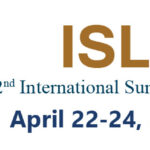According to the U.S. Centers for Disease Control & Prevention, stroke is the fourth leading cause of death in the United States and is a major cause of adult disability. The Visiting Nurse Association (VNA) Space Coast, a not-for-profit home health agency serving all of Brevard County, provides in-home health care to support patients and their family caregivers as they recover from a stroke.
Linda Shelby, RN, is the director of the VNA’s home health services. She explains that her staff of nurses, therapists and home health aides care for patients who have experienced strokes of various types and severities. Hemorrhagic strokes, which may lead to the most severe complications, result from the rupture of a blood vessel and are often caused by uncontrolled high blood pressure. Ischemic strokes occur when a blood vessel becomes blocked by a clot of some type. A transient ischemic attack, often called a “TIA” or “mini-stroke,” is caused by a temporary blockage and may cause less severe symptoms that go away with no residual effect.
Linda explains that most VNA home health patients are seen after they’ve suffered a TIA. “We work with those patients,” she explained. “To address the underlying health condition that contributed to the stroke. A TIA can be a precursor to a major stroke, so we’re really trying to help patients prevent a second, more serious and potentially debilitating stroke.”
 Often, this means teaching patients and their family how to manage chronic health conditions like hypertension, high cholesterol, or atrial fibrillation along with related medications such as anti-coagulants and blood thinners. The VNA can also provide in-home telemonitoring to keep an eye on patients’ vital signs and symptoms.
Often, this means teaching patients and their family how to manage chronic health conditions like hypertension, high cholesterol, or atrial fibrillation along with related medications such as anti-coagulants and blood thinners. The VNA can also provide in-home telemonitoring to keep an eye on patients’ vital signs and symptoms.
Sometimes, however, patients suffer more severe strokes and need rehabilitative therapy to help them regain the ability to walk, speak, or even swallow. They may also need instruction on how to adapt to life when using a cane, walker or wheelchair. In these instances, the VNA’s therapy team steps in. Amy Fulmer, PT, the VNA’s primary physical therapist in Brevard County, explains that the VNA’s physical, speech, and occupational therapists help patients regain the highest level of function possible after a stroke. Many patients become frustrated at the perceived slow pace of their recovery. “They worry that their level of function won’t return to normal,” she said. “So we’re there to reassure them and provide them with coping techniques to help them practice patience as they recover.”
Patients who experience severe debility after a stroke need ongoing assistance from a family or professional caregiver. Eileen Petrie, RN, the VNA’s patient care manager, explains that the VNA can help family caregivers navigate seemingly daunting challenges like how to properly move the patient, prevent skin ulcers in bed-bound patients, or even administer tube feedings. “Our patients didn’t need us before a stroke,” she said. “I always tell them we’ll get them to the point that they can get along without us, regardless of how much education and support is required.”
In-home care provided by the VNA’s nurses, therapists, home health aides and social workers is generally covered by Medicare and commercial insurances; Linda Shelby says she’s surprised at how many people don’t realize that in-home care is a covered Medicare benefit.
VNA medical director James Kearney, M.D., agrees, “I have seen firsthand the benefit of home health care therapy in the long-term recovery in patients with stroke,” he said. “It is important for patients to work closely with healthcare providers to identify early onset of symptoms.”
For more information about VNA home care services, please call (321) 752-7550 or visit VNAtc.com License
This article appears in the February 2015 issue of SpaceCoast Living HEALTH.
Did you like what you read here? Subscribe to SpaceCoast Living











